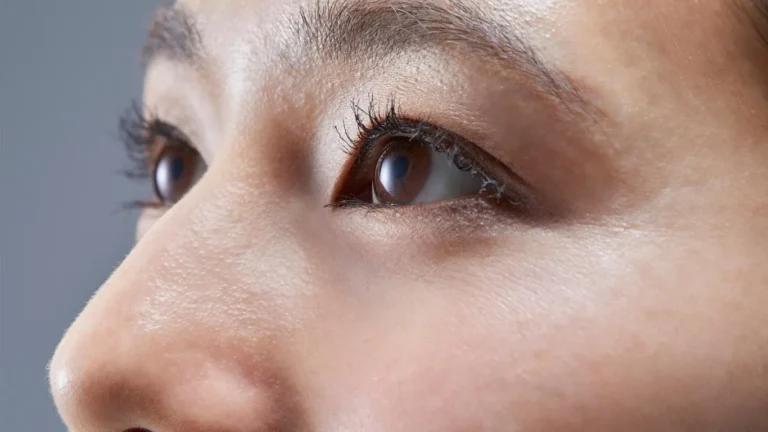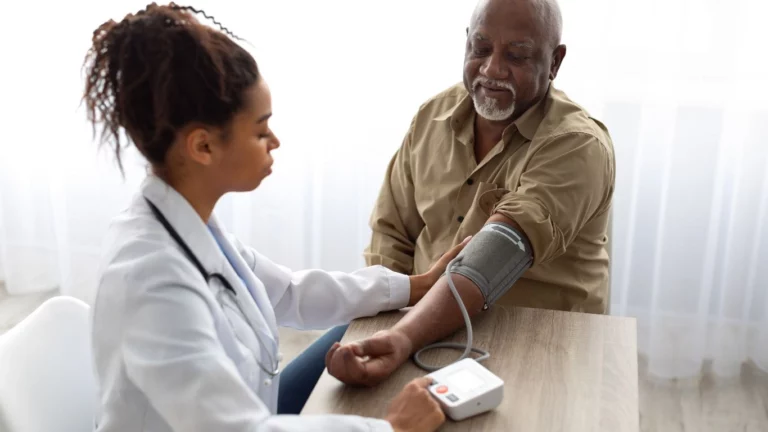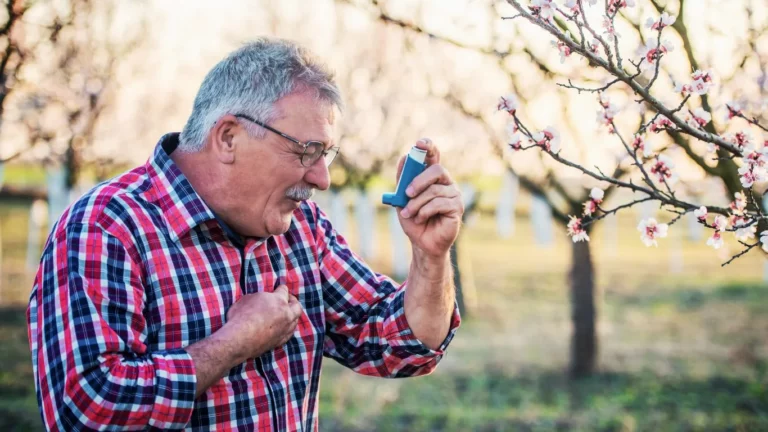How Alcohol-Free Beer Affects GERD: Surprising Truths & Tips
Let’s talk about something that doesn’t always make the dinner table conversation: GERD. Or, more specifically, how alcohol-free beer affects GERD. Working in a Gastroenterology clinic as a Medical Assistant has shown me firsthand just how many people silently struggle with acid reflux. And guess what? A lot of them are trying to make healthier choices—like switching to non-alcoholic beer—only to be hit with the surprise that it might not be as gentle on the gut as they hoped.
So, Is Alcohol-Free Beer Really GERD-Friendly?

It’s a common assumption that if you cut the alcohol, you’re doing your digestive system a favor. But here’s the real kicker: alcohol-free beer can still be a trigger for GERD symptoms. Yep, even the 0.0% stuff. In the clinic, I’ve seen patients switch to non-alcoholic options, thinking they were making the heartburn vanish—only to end up back in my exam room a week later, burping fire and reaching for their antacids.
The thing is, alcohol isn’t the only ingredient in beer that can mess with your esophagus. Carbonation, acidity, hops, and even the way it’s brewed can all be part of the problem. So, if you’re sipping on a Heineken 0.0 thinking you’re totally in the clear—let’s take a deeper look.
What’s Actually in Alcohol-Free Beer?
Most alcohol-free beers still go through a fermentation process. The alcohol is either removed afterward or minimized during brewing. But during that process, you still end up with:
- Carbon dioxide – yep, that bubbly fizz that feels refreshing? It can expand in your stomach and push acid up your esophagus.
- Hops – they give beer that bitter edge, but they’re also known to relax the lower esophageal sphincter (LES), which is supposed to keep acid where it belongs—in your stomach.
- Acidity – beer (alcoholic or not) tends to have a low pH, making it a potential irritant to your already sensitive GI tract.
So while the booze is gone, the party in your stomach might still be raging—and not in a good way.
Carbonation: The Hidden Culprit
Honestly, I didn’t fully get how much of a difference carbonation made until I started tracking patterns with patients. Those who had sparkling waters or fizzy drinks—even without alcohol—often reported similar reflux symptoms. That bloated, gassy feeling? It’s pressure building in your gut, and if your LES is weak, it’s going to give way. Hello, acid reflux.
And alcohol-free beer is bubbly. Most varieties are carbonated to mimic the real beer experience. But that bubbly joyride is a problem for folks with GERD. Some patients actually started feeling better just by switching to flat beverages—crazy, right?
GERD and the Relaxed Lower Esophageal Sphincter

This part gets a little technical, but stay with me—it matters. The lower esophageal sphincter (LES) is a muscular valve that sits between your esophagus and stomach. When it’s working properly, it stays shut and only opens when you swallow food or liquid. If it relaxes when it shouldn’t (which hops, carbonation, and acidity can all cause), that acid splashes up, triggering the classic GERD symptoms: burning, belching, bloating.
I’ve actually explained this to patients by comparing it to a faulty lid on a blender. If you’re trying to blend soup and the lid isn’t sealed tight, it’s gonna splash out. Same thing here—pressure builds, the LES isn’t sealing tight, and bam: reflux. Alcohol-free beer doesn’t fix that issue. In some cases, it might even make it worse.
Does Type of Non-Alcoholic Beer Matter?
Yep, it sure can. Just like with regular beers, some non-alcoholic versions are lighter and less acidic than others. Wheat beers tend to be milder, while IPAs—whether boozy or not—are often more acidic and hoppy. IPA-style alcohol-free beers are probably the worst offenders for GERD-prone folks.
Some brands are even brewed specifically with gut health in mind, but I always recommend checking the ingredients and pH level if you can find it. Look for ones with less carbonation and a smooth, low-acid profile. And if a certain type consistently triggers symptoms, it’s time to ditch it. No shame in switching up your drink to save your esophagus!
When Patients Ask Me: “Is It Safe to Drink Alcohol-Free Beer with GERD?”

Honestly, the answer is: it depends on your body. Some people tolerate it fine in moderation, especially if they’re mindful of their triggers and pair it with food. Others can’t handle even a few sips without regretting it. I’ve seen both ends of the spectrum.
Here’s what I usually tell folks who ask:
- Start small. Try just half a bottle and pay attention to your body.
- Avoid drinking it on an empty stomach.
- Skip it entirely if you’re already having a flare-up—no sense pouring acid on a fire.
- Keep a symptom diary for a week or two. You’d be surprised what patterns show up.
And don’t be afraid to get a little nerdy with your drink choices. Track the type of beer, brand, when you drank it, and how you felt afterward. It’ll give you way more insight than just guessing in the dark.
Real Talk: Alcohol-Free Beer Affects Everyone with GERD Differently

One of the things I’ve learned working with patients is that GERD isn’t a one-size-fits-all situation. Some people can have a spicy burrito and a non-alcoholic IPA and sleep like a baby. Others? One sip of a fizzy drink and they’re waking up in the middle of the night with that all-too-familiar burn in their throat. It’s like the reflux lottery—no one knows how bad it’ll hit until it does.
I remember chatting with a patient who had completely given up regular beer due to reflux but figured alcohol-free options were safe. After switching, she came back a few weeks later and said, “Camellia, I swear this stuff is sneakier than the real thing.” And she wasn’t wrong. It wasn’t the alcohol, it was everything else hiding behind that ‘safe’ label.
Why the Label ‘Alcohol-Free’ Can Be Misleading
This is where it gets a bit frustrating. Just because a product says “alcohol-free” doesn’t mean it’s gentle on your digestive system. Here’s the thing a lot of people don’t realize:
- Many alcohol-free beers still contain up to 0.5% alcohol. That may not seem like much, but for someone with severe GERD, even that tiny amount can be enough to irritate the esophagus.
- They’re often acidic and carbonated—two big GERD triggers that have nothing to do with the alcohol content.
- Flavor additives and preservatives might also play a role in flare-ups, especially for folks with sensitive stomachs.
If you’re scanning the label and it’s packed with unfamiliar ingredients, that’s already a red flag. I always tell people: If you can’t pronounce half the label, maybe rethink drinking it.
Practical Tips to Enjoy Alcohol-Free Beer Without Triggering GERD

Now, I’m not here to say you need to swear off non-alcoholic beer forever (unless it’s really not working for you). Instead, here’s what I’ve seen help people manage better:
1. Pair It with the Right Foods
Drinking on an empty stomach? Big mistake. Food acts as a buffer, and if you’re going to have a bottle of alcohol-free beer, make sure you’re eating something low-acid and GERD-friendly. Think baked chicken, rice, steamed veggies—not greasy fried stuff or acidic sauces.
2. Sip Slowly (Seriously!)
Chugging anything carbonated increases pressure in the stomach. More pressure = higher chance of acid pushing up through your LES. Slow down, take small sips, and don’t gulp. Bonus tip: let your drink sit open for a few minutes to flatten it slightly. Less fizz = less risk.
3. Try Different Brands
This one’s a game-changer. Not all alcohol-free beers are created equal. Some brands go hard on the hops, while others are milder and smoother. I had a patient switch from a hoppy non-alcoholic IPA to a malt-forward wheat beer and saw a big drop in reflux episodes. Experiment a little and keep track of how your body reacts.
4. Avoid Late-Night Sipping
Honestly, this one’s huge. Drinking anything—especially something acidic or fizzy—too close to bedtime is practically begging for reflux. I tell patients to keep at least a 2-3 hour gap between their last drink and lying down. Gravity helps keep acid where it belongs—don’t fight it.
What Science Says About Alcohol-Free Beer and GERD

Okay, let’s nerd out a bit (but not too much). There’s not a ton of large-scale research specifically on how alcohol-free beer affects GERD, but studies on similar triggers give us some clues.
- Carbonated drinks increase gastric pressure, which weakens the LES and leads to reflux. Doesn’t matter if it’s soda, sparkling water, or beer.
- Hops and bitterness may stimulate acid production, which is bad news for already sensitive stomachs.
- Acidic beverages—anything with a low pH—are linked with more esophageal irritation and symptoms.
So yeah, even without the alcohol, the mechanics of reflux are still very much at play with these beverages.
The Gut-Brain Connection (And Why Stress Plays a Role Too)
Let me sneak in a slightly unexpected angle here. A lot of patients tell me their reflux gets worse when they’re stressed—like clockwork. And when we dig into their routines, they’re often having a drink (even a non-alcoholic one) to unwind in the evening. That combo of fizzy liquid and tense gut? Not ideal.
Your GI tract is super sensitive to stress signals. And while alcohol-free beer itself might not cause GERD, drinking it during periods of high anxiety can definitely make symptoms worse. Just something to keep in mind.
My Takeaway from the Clinic
From what I’ve seen working side by side with gastroenterologists, the story is always the same: everyone’s gut is different. There’s no one answer that works for all. But patterns do start to emerge when you really pay attention. Patients who track their food and drink, ask questions, and experiment with moderation tend to get better results—and fewer flare-ups.
If you’re someone who loves the idea of sipping a cold one without the alcohol, just know it’s not automatically reflux-proof. Test it out, stay mindful, and don’t be afraid to ditch it if your body gives you red flags. That’s not giving up—that’s being smart about your health.
What to Drink Instead: GERD-Safe Alternatives to Alcohol-Free Beer

By now, you might be wondering—okay, if alcohol-free beer isn’t always reflux-safe, what can I actually enjoy without waking up in pain? I get it. Nobody wants to give up everything. The key is balance and finding drinks that give you that same “relaxing vibe” without the acid overload.
Over the years, I’ve helped plenty of patients experiment with alternatives, and a few options consistently get the GERD-friendly stamp of approval. You might not get the exact beer experience, but you’ll be less likely to deal with that burning regret later.
1. Herbal Teas (Hot or Iced)
Chamomile, ginger, and licorice root tea can soothe the stomach lining and help reduce inflammation. Ginger tea in particular is my go-to suggestion—just make sure it’s not too strong or spicy.
2. Flat or Still Beverages
Whether it’s infused water (think cucumber or mint) or a mellow smoothie, non-carbonated drinks tend to be gentler. Some of my GERD patients have actually found almond milk-based drinks calming for their symptoms.
3. Low-Acid Fruit Juices
Think pear juice, aloe vera juice (in moderation), or even melon-based blends. Avoid citrus, of course. A patient once swapped out orange juice for cold pear juice and couldn’t believe the difference. “It was like night and day,” she told me, smiling over her updated breakfast routine.
4. Lightly Brewed Iced Rooibos or Green Tea
If you’re looking for that slightly bitter flavor that reminds you of beer, rooibos tea might surprise you. It’s earthy and refreshing—and better yet, naturally caffeine-free and non-acidic. Just don’t steep it too strong.
How to Talk to Your GI Provider About This

One thing I always encourage patients to do is speak up during appointments. Don’t just say, “I get reflux sometimes.” Get specific. Mention how alcohol-free beer affects your GERD. Share details—what brand you tried, how you felt afterward, when you drank it, and what you ate with it. These small things help us paint a clearer picture.
Gastroenterology providers really do want to get to the root of your symptoms—and the more info you give, the better the care you’ll receive. You can even bring in photos of nutrition labels or keep a food and symptom journal. It’s not overkill—it’s smart.
When to Consider Testing or Medication Changes
If your GERD isn’t improving despite cutting back on triggers (including alcohol-free beer), it might be time to dig deeper. You could be dealing with:
- Hiatal hernia – where part of your stomach pushes through your diaphragm.
- Esophagitis – inflammation of the esophagus, often caused by ongoing acid exposure.
- Non-acid reflux – where symptoms exist even if acid isn’t the main culprit.
I’ve seen patients finally get relief after switching up medications, getting scoped, or adjusting their treatment plan. If it feels like nothing’s working, don’t just push through—ask for a reassessment.
Final Thoughts from My Experience in GI Care
Here’s the truth: managing GERD is part science, part lifestyle, and a whole lot of trial and error. And while alcohol-free beer sounds like a healthier, smarter alternative—it can still be sneaky when it comes to reflux triggers.
In the clinic, I’ve watched people go from frustrated and overwhelmed to confident and symptom-free—all by making small changes and tuning in to their bodies. It’s not about perfection; it’s about progress.
If you’ve been sipping that non-alcoholic lager thinking it’s totally reflux-safe, don’t feel bad. You’re not alone. But now you’ve got a clearer picture of what could be happening behind the scenes—and better yet, some practical options to help you take control.
So next time you’re in the beverage aisle, just pause and check in with yourself. Is this drink going to support your gut health, or stir up trouble? Your esophagus will thank you later.
References
Disclaimer
This article is for informational purposes only and is not intended to diagnose, treat, cure, or prevent any disease. Always consult with a qualified healthcare provider before making any changes to your diet, medication, or lifestyle, especially if you have a medical condition like GERD.

Camellia Wulansari is a dedicated Medical Assistant at a local clinic and a passionate health writer at Healthusias.com. With years of hands-on experience in patient care and a deep interest in preventive medicine, she bridges the gap between clinical knowledge and accessible health information. Camellia specializes in writing about digestive health, chronic conditions like GERD and hypertension, respiratory issues, and autoimmune diseases, aiming to empower readers with practical, easy-to-understand insights. When she’s not assisting patients or writing, you’ll find her enjoying quiet mornings with coffee and a medical journal in hand—or jamming to her favorite metal band, Lamb of God.







